It's JUST Climate Change
It’s JUST Climate Change brand
Green Action International is proud to introduce the ‘It’s JUST Climate Change’ brand, establishing ourselves as a leading provider of just transition carbon credits for individuals, businesses, and investors. Our goal is to transcend the ESG and greenwashing debates by presenting a carbon sequestration model rooted in just transition principles.
Our Mission
As an accrediting carbon consultant, Green Action International connects nature-based projects in the UK and East Africa. In the UK, our projects focus on raising awareness of our projects, bringing to market high integrity carbon credits and our consultancy packages. In East Africa, we support initiatives that remediate rangeland, forests, and mangroves. We offer you the opportunity to maximise your carbon change benefits through informed choices.
It’s JUST Climate Change.

Carbon Credits
We aim to make available 10,000 tonnes of carbon credits through bulk trade or individual purchase, with prices reflecting the impact of each type of credit:
Biochar Carbon
(Rangeland Remediation):
£200 per tonne
Plantation Trees:
£10 per tonne
Our biochar carbon credits offer significant benefits.
Pure plantation tree-based credits have limited impact in terms of biodiversity, rural incomes, job creation, and just transition outcomes.
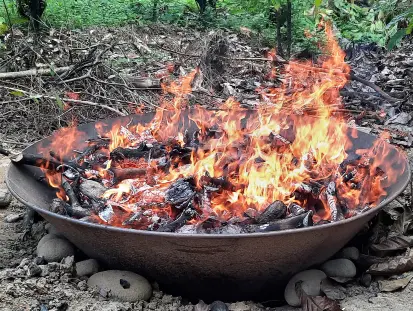
Biochar is produced via pyrolysis technology. In plain language this means a mix of sustainably grown woody and other plant materials (biomass) are cooked instead of burnt. We will use the Flame Curtain Pyrolysis (the Kon-Tiki method) as the main technique. This consists of pyrolysing biomass layer by layer in a conically-, polygonal-, rectangular-, or cylindrical-formed metal, concrete, or soil kiln. This creates a high-quality product without the production of smoke and greenhouse gases (GHG).
Traditional open-fire cooking is associated with low efficiency, high GHG emissions per meal, and adverse health effects, particularly among women and children. Pyrolysis Cook Stoves burn mostly woody feedstock and use the resulting pyrolysis gas for cooking. This method is significantly cleaner than using simple wood fire or wood-burning stoves, is more feedstock efficient and produces biochar with every meal.
By converting sustainable biomass into biochar using pyrolysis, a long-term carbon reservoir (C-Sink) can be created. A digital Measurement, Reporting and Verification tool (dMRV), ensures the biochar is used to form a C-sink. C-sink certificates are only issued for those parts of the biochar for which it can be proven that they have been put into the soil or approved building materials.
Traditional open-fire cooking is associated with low efficiency, high GHG emissions per meal, and adverse health effects, particularly among women and children. Pyrolysis Cook Stoves burn mostly woody feedstock and use the resulting pyrolysis gas for cooking. This method is significantly cleaner than using simple wood fire or wood-burning stoves, is more feedstock efficient and produces biochar with every meal.
By converting sustainable biomass into biochar using pyrolysis, a long-term carbon reservoir (C-Sink) can be created. A digital Measurement, Reporting and Verification tool (dMRV), ensures the biochar is used to form a C-sink. C-sink certificates are only issued for those parts of the biochar for which it can be proven that they have been put into the soil or approved building materials.
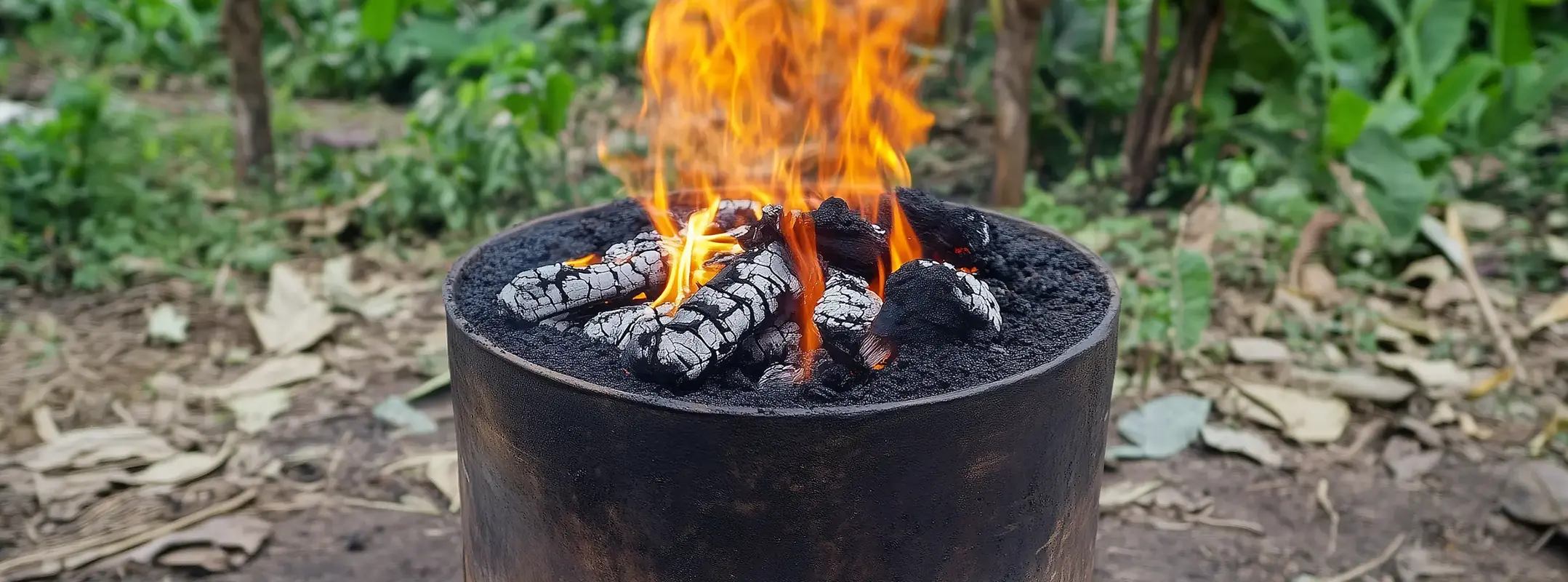
Lifetime Calculations and Impact
Green Action will work with communities to ensure biochar production meets their needs. Plant and tree species will be chosen for their biodiversity and economic values, for example from medicinal barks, rare woods, nuts and fruits. The project has received enthusiastic support from communities and administrations because of its focus on their futures.
Biochar production will result in carbon reservoirs across the landscape encouraging natural regrowth and rangeland remediation. In turn this will lead to more carbon absorption, water absorption and plant growth. Adherence to the Artisan C-Sink Methodology means that we will we create long-term carbon storage with a persistence of over 1,000 years.
Biochar production will result in carbon reservoirs across the landscape encouraging natural regrowth and rangeland remediation. In turn this will lead to more carbon absorption, water absorption and plant growth. Adherence to the Artisan C-Sink Methodology means that we will we create long-term carbon storage with a persistence of over 1,000 years.
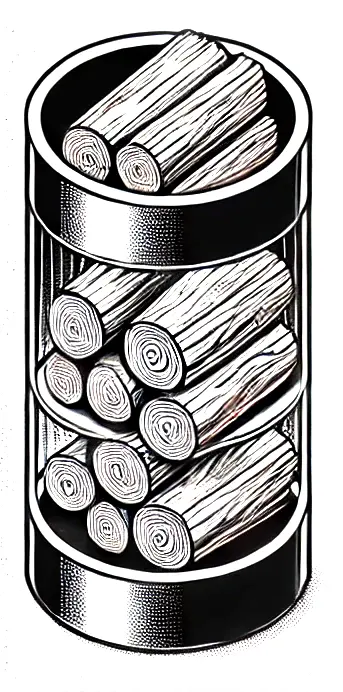
Raw Material
Mathenge has spread aggressively due to its resilience in arid climates, making it an ideal, abundant biochar material.
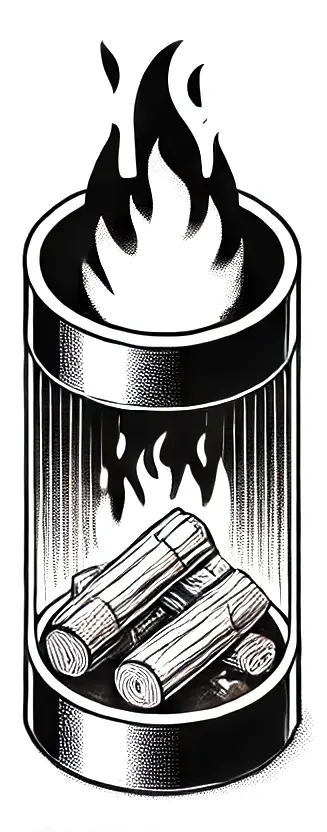
Pyrolysis
Pyrolysis is the thermal decomposition of organic material in the absence of oxygen, typically occurring at temperatures between 400-800°C.
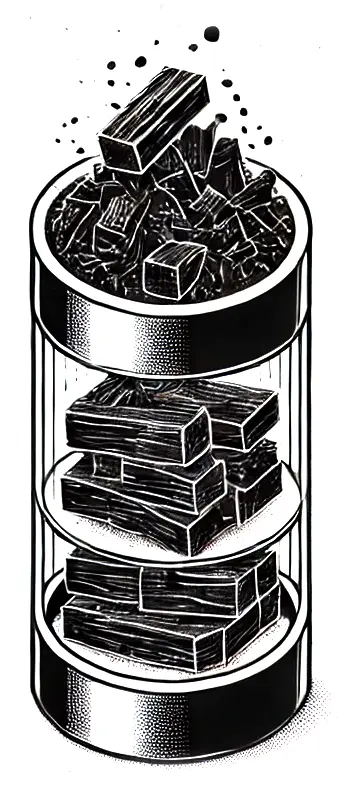
Charcoal
Charcoal produced by pyrolysis locks away carbon by converting biomass into stable carbon forms, preventing it from releasing CO₂.